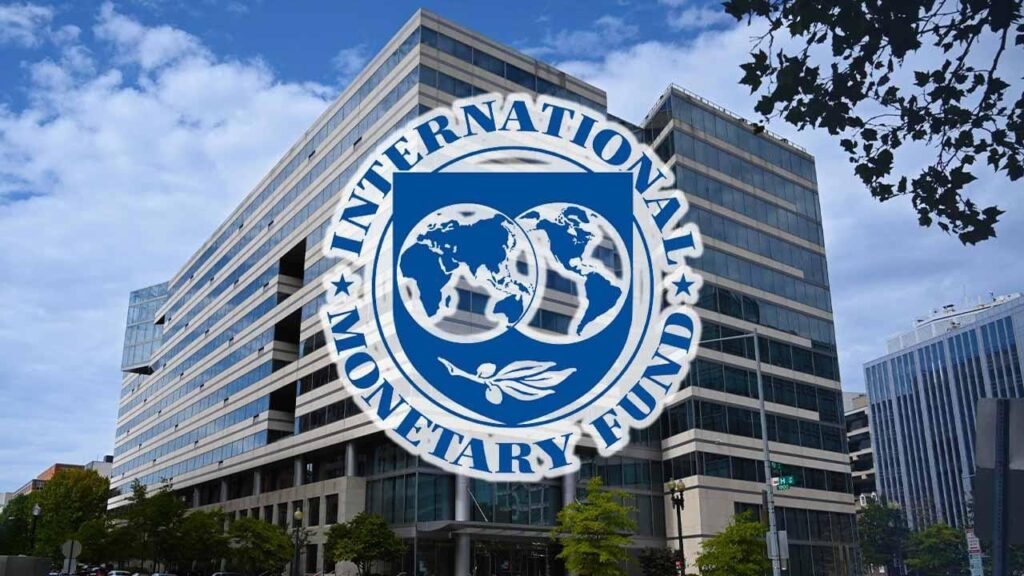In Summary
- Lesotho cut its IMF debt by over 70% in just five years while Djibouti has maintained low debt levels while simultaneously investing in large-scale infrastructure projects.
- This article explores their financial strategies, economic resilience, and how they’ve reduced reliance on external loans.
- These nations have kept IMF debt minimal through effective policies, strong domestic revenue generation, and strategic investments. Their approach strengthens economic independence and long-term growth.
Deep Dive!!
Africa’s economic landscape is evolving rapidly, with many nations taking bold steps to strengthen financial independence. While global debt levels continue to rise, some African countries have successfully kept their IMF obligations remarkably low.
What’s their secret? Lesotho leads the pack with the lowest IMF debt, demonstrating disciplined financial planning. Djibouti, despite ambitious infrastructure projects, has managed to keep its debt in check. Even Guinea-Bissau, often overlooked in economic discussions, has maintained fiscal stability while expanding key industries.
These countries are not just reducing debt—they are investing in their future. By prioritizing sustainable policies, boosting revenue generation, and making strategic economic moves, they have avoided the burden of excessive IMF loans.
In this article, we break down the top 10 African countries with the lowest IMF debt as of January 2025, showcasing their financial achievements and what makes their strategies successful.
10. Burundi
Burundi’s IMF debt stands at $100.6 million. The nation has focused on enhancing domestic revenue collection and implementing fiscal reforms to reduce reliance on external borrowing. However, challenges such as political instability and limited economic diversification continue to impact its fiscal health.
9. Somalia
Somalia’s IMF debt is $87 million. Following decades of conflict, the country has engaged with international partners to rebuild its institutions and economy. Debt relief initiatives and economic reforms have contributed to its relatively low IMF debt. Nevertheless, ongoing security concerns and infrastructure deficits pose challenges to sustained economic growth.
8. Cabo Verde
Cabo Verde maintains an IMF debt of $72.12 million. The archipelago’s strategic investments in tourism and services have bolstered its economy, reducing the need for extensive external borrowing. Prudent fiscal policies and effective governance have further contributed to its modest IMF debt levels.
7. Equatorial Guinea
With an IMF debt of $65.75 million, Equatorial Guinea has leveraged its oil revenues to manage its fiscal obligations. Efforts to diversify the economy and improve transparency have been pivotal in maintaining low IMF debt. However, fluctuations in global oil prices remain a significant risk factor.
6. Guinea-Bissau
Guinea-Bissau’s IMF debt stands at $52.29 million. The country has implemented fiscal consolidation measures and sought international support to stabilize its economy. Political instability and reliance on cashew nut exports present ongoing challenges to its economic resilience.
5. Djibouti
Djibouti’s IMF debt is $31.8 million. Its strategic location has facilitated investments in port infrastructure and logistics, enhancing revenue generation. Sound fiscal management and economic reforms have enabled Djibouti to maintain a low level of IMF debt.
4. Eswatini
Eswatini holds an IMF debt of $29.44 million. The country’s efforts in fiscal discipline, coupled with initiatives to diversify its economy beyond agriculture, have contributed to its modest IMF debt levels. Continued focus on economic reforms remains essential for sustained fiscal health.
3. São Tomé and Príncipe
São Tomé and Príncipe’s IMF debt is $27.67 million. The nation has pursued fiscal reforms and sought to attract foreign investment to stimulate economic growth. Challenges such as limited resources and vulnerability to external shocks necessitate ongoing prudent economic management.
2. Comoros
Comoros maintains an IMF debt of $20.93 million. The country’s focus on fiscal consolidation and efforts to enhance domestic revenue mobilization has been instrumental in keeping IMF debt low. Economic diversification and infrastructure development remain key areas for future growth.
1. Lesotho
Leading the list, Lesotho’s IMF debt is $11.66 million. The nation’s prudent fiscal policies, including effective public financial management and efforts to broaden the tax base, have contributed to its minimal reliance on IMF assistance. Maintaining this trajectory will require continued commitment to economic reforms and addressing challenges such as unemployment and poverty.
https://www.africanexponent.com/top-10-african-countries-with-the-lowest-imf-debt-in-early-2025-2/


